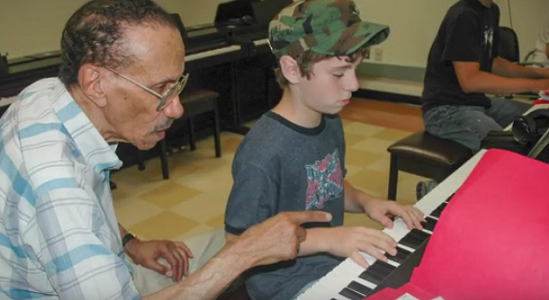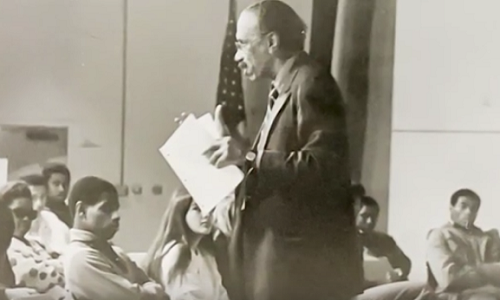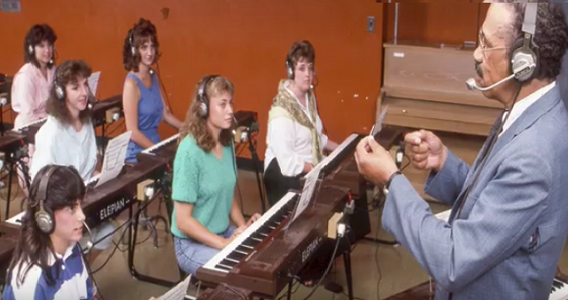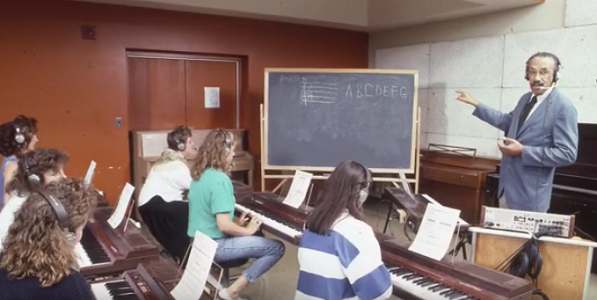Henry Santos
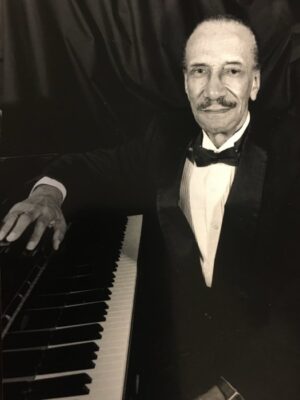
Henry J. Santos
USA, 1927- USA, 2020
Professor, researcher, instrumentalist (piano), compositor
Henry J. Santos was a professor at Bridgewater State University in Bridgewater, Massachusetts, for over 30 years, and had an important role in the development of music courses in the university. He is emeritus professor at BSU. As an academic he published numerous works, one of them being is collaboration in Reflections om Afro-American Music, edited in 1978 by The Kent State University Press. In honor to his trajectory, the Brigdewater State University created the Henry Santos scholarship, awarded annually to a student since 2004.
One of Professor Santos most important studies was about a group of black musicians formed in Europe in classical tradition that played in elite salons of New Orleans in the 19th century – Basile J. Bares, Edmond Dede, Lucian Lambert, Sidney Lambert, Eugene Victor Macarty and Samuel Snaer. Dede, for example, was the first Afro-American to study in the Paris Conservatory and conducted the Orchestra of Bordeaux; Lucian Lambert became a musician of the court of the Brazil Emperor, while Sidney Lambert went to Portugal as a pianist, also to perform at the court. Despite their prominence and prestige at the time, Henry Santo’s historic study shows the problems they faced regarding racial issues. But his interest for them was especially related to them composing dance music – polkas, mazurkas, waltzes, marches and square dance – that at the time merged in the world, reaching Cape Verde as well. Santos interpreted some of those compositions in one of his last concerts in 2015.
Henry J. Santos, that was friend and university colleague of Martin Luther King Jr., composed a tribute to the black leader that was killed in 1968, the work “Salm 64”. In the Bible, Salm 64 ask for divine protection against the evil that threatens the good man. This work was presented in the Providence State House, the Rhode Island state headquarters, in the first celebration of the Marthin Luther King Day in Providence. Later was interpreted in other events and media. Santos had his composition “Leoa” interpreted by the group Videmus at the Sanders Theatre in Harvard.
As a concert performer, among other examples, Santos was a semifinalist in Paris in the First Louis Moreau Gottschalk Competition for Pianists and Composers, certainly sponsored by the Pan-American Union, being selected to perform an award-winning work for piano and orchestra. Performed in the Inter-American Conference of Studies on Black Music in Trinidad and accompanied Elmer Dickey, three times winner of the Marion Anderson Singer Competition. In the studio, Santos accompanied the black tenor, Roland Hayes.
Besides his formal training as a pianist, concert performer and composer (graduate and master in music from the Boston University), Santos improved himself in advanced studies in composition with Hugo Norden and regency with Alan Lannon. He also attended courses in Switzerland and in the Harvard University.
Before becoming a professor, he taught piano and performed as accompanist and soloist in presentations for the music department at the Perkins School for the Blind in Cambridge, Massachusetts. Among his students at Perkins there was the actor Tom Sullivan, whose biography If You Can See What I Hear, was transformed into a movie: Ellis Hall who performed with the group Earth Wind & Fire and was working with Ray Charles and Jamie Foxx before Charles passed, among others.
